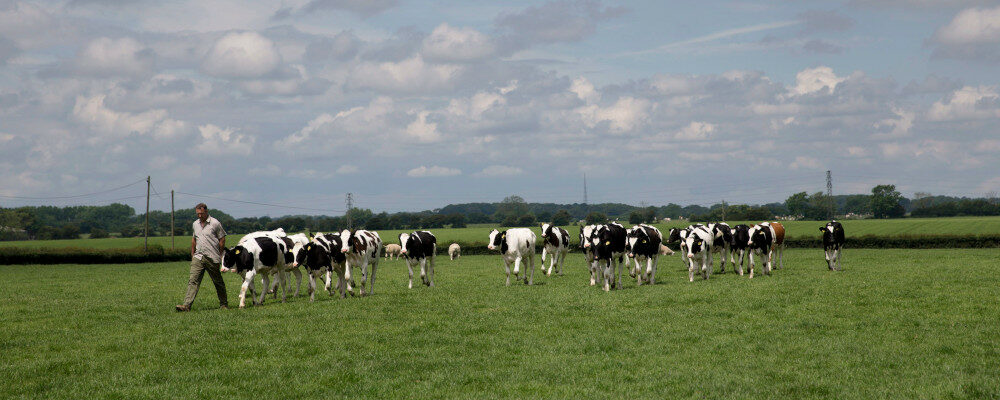Jeremy Clarkson, the British television host and provocateur, could hardly be confused with being an embodiment of “the little guy”. Wealthy, brash, and often courting controversy, Clarkson can, at times, seem just the opposite. But in his latest season of Clarkson’s Farm, he manages to lend his spotlight to those without one and teaches us some valuable lessons along the way.
Season two of the hit show landed this past month with a mixture of praise and condemnation. Clarkson, the titular host, is of course fighting for his career after making some rash remarks about the Duke & Duchess of Sussex. Separating a critical review of the show from this broader context is difficult, but I’ll endeavour to do so here.
I admit myself a fervent fan of the show. The first season, which featured the eponymous Clarkson as he set about to learn how to farm his 1000-acre property, was one of the best pieces of television I have seen in years. Entertaining, educational, and endlessly endearing, the first eight episodes took viewers through the ins and outs of farming. The authenticity of the characters shone through as locals around the village of rural Chadlington sought to show Clarkson how they lived. Last fall, during a visit to the U.K., I took a drive out to the farm to see for myself. It’s easy to see why these folks have chosen to make this pristine land their home.
Without giving away too many spoilers, this second season takes a different approach. While the first season pitched Clarkson & co against Mother Nature and his own inexperience, the villain of this season is very clear: government regulation.
Over the course of several episodes, Clarkson does battle with his local council on regulations involving conservation, protected species, property rights, and more. The team struggle to determine how to survive in an agricultural landscape covered in red tape and necessitating a complex web of subsidy programs to stay afloat. NIMBYism runs amok through the show.
The consequence of this: Clarkson and other local farmers are prevented from trying to make a living.
In one story arc, Clarkson and other local farmers try to launch a locally sourced farm restaurant. Selling meat and produce through the restaurant would deliver a much higher return on investment versus selling it in the regulated market. Local council blocks his application, worrying that an influx of customers to his property would adversely impact conservation goals (amongst other reasons). Economic development and diversification don’t figure into the regulatory calculus.
When he seeks to appeal the decision, he is faced with a £500M legal bill, which would have obliterated the profit potential.
Now, it must be said that this is, of course, a dramatization. I have no doubt that the production team has taken editorial liberty to emphasize these challenges. Moreover, Clarkson’s bombast plays a role in antagonizing decision-makers.
But the fact remains: this most recent season is a fantastic case study in how government regulations can become totally separated from the reality on the ground. It becomes clear throughout the show that regulators and councillors have no concept of how some of their decisions and rules are impacting the locals.
In another scene, local farmers complain that antiquated rules protecting the badger population are causing dangerous outbreaks of bovine tuberculosis. According to the farmers, despite a rebound in the badger population, they are barred from doing anything about them. Many are forced to stand by and watch as their herds are decimated by this disease.
What struck me the most watching this was how helpless the locals felt in the face of these obstacles. Many seem to be simply resigned to their fate. A beef farmer who lost half of her herd explains the situation to Clarkson and seems to sorrowfully accept the situation. The challenges they are facing are so significant that they simply don’t have the time to engage in complex lobbying. Clarkson says that the situation is “soul-crushing” for many of them.

Jeremy weaponizes his media profile and Amazon budget to make their case. Without casting judgements on whether his arguments are sound, he is at least able to make a compelling case for change.
But what about these farmers who can’t? What about those who don’t have money or time to spare?
We have a tendency in government to place an undue amount of weight on the views of stakeholders who have a presence. But shows like this remind us about how important it is to get the perspective of “the little guy”. It isn’t always easy to do so.
We can’t hire camera crews to follow locals around every time we consider new regulations or legislation.
For me, a big part of the solution here is emphasizing the role of the local representative. A strong local representative should have a good finger on the pulse of their local constituencies. It is incumbent on them to ensure that the voices of those “little guys” are given due weight in the halls of power. Many representatives forget this function, giving more weight to larger actors.
In Clarkson’s Farm, it appears the local councillors have forgotten this function. They may face consequences when they next face voters. But in the meantime, I hope that the broader lesson of this season is absorbed. Decisions have consequences and when you ignore the views of those affected because you don’t take the time to seek out their views, you can miss the common-sense consequences.
If you haven’t tuned in yet, check it out. I promise you’ll be entertained, and you’ll probably learn something too.




